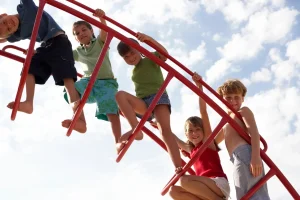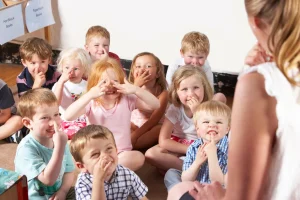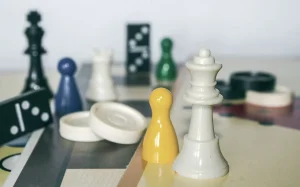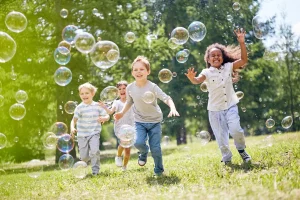Positive peer to peer interaction is not always something that comes naturally for those with Autism Spectrum Disorder. Games that promote communication and teamwork are helpful in teaching some of these skills. Here are six easy and fun activities to promote social skills:

1. Build a lego structure. Lego-building can be done in teams, with or without a timer, to encourage teamwork. If this is done with two children, they can take turns providing directions from the instruction manual while the other does the building. Using a timer to see if they can finish building with a limited amount of time may make the activity even more exciting. You can also do this activity with more than two children and split them into teams to see which team builds the fastest. During this activity, lego structures are not the only things being built. When one child relays the information about the steps to building the lego structure to the other child and the other child follows their instructions, teamwork and communication skills are being built as well!

2. Find the hidden object. One child is blindfolded while the other directs him to a hidden object or person. This is not only fun but it also teaches following directions, listening, and using prepositions. You can also use a timer to set a goal for the amount of time it takes for the blindfolded player to find the object.

3. Create a treasure hunt or escape room. A treasure hunt involves clues in the form of riddles and puzzles that eventually lead to a prize, or “treasure.” This can be done on your own if you wish to create your own clues, or you can take your child, along with some friends to an escape room near you. An escape room is a business in which small groups pay to enter a room, with a theme of their choice, that is packed with clues about how to eventually get out of the room within a certain time-limit. Escape rooms and treasure hunts are exciting ways to promote teamwork, creativity, and communication to reach toward a common goal. There may be a lot of laughter and friendship-building in the process!

4. Play Charades. The age-old game of Charades involves picking out the name of an item, movie, activity, song, etc, from a hat and acting it out, without speaking, for another team member to guess. If they guess correctly within a set time limit, that team receives a point. Teams take turns doing this and whichever team receives the most points, wins! Traditionally the game is played by “acting it out,” but it can also be played by describing it with words. Playing it that way can help increase critical thinking, communication and creativity as team members need to choose their words wisely enough to get the right guesses, without actually saying the name of the item or phrase.

5. Play board games. Board games like Zingo, Trouble, and Guess Who can be helpful in developing children’s ability to cope with losing and turn-taking. Both of these skills are important for social development considering there will be many situations throughout your child’s life in which something may not go their way. Learning what behavior is appropriate when losing will help your child in future social situations.




